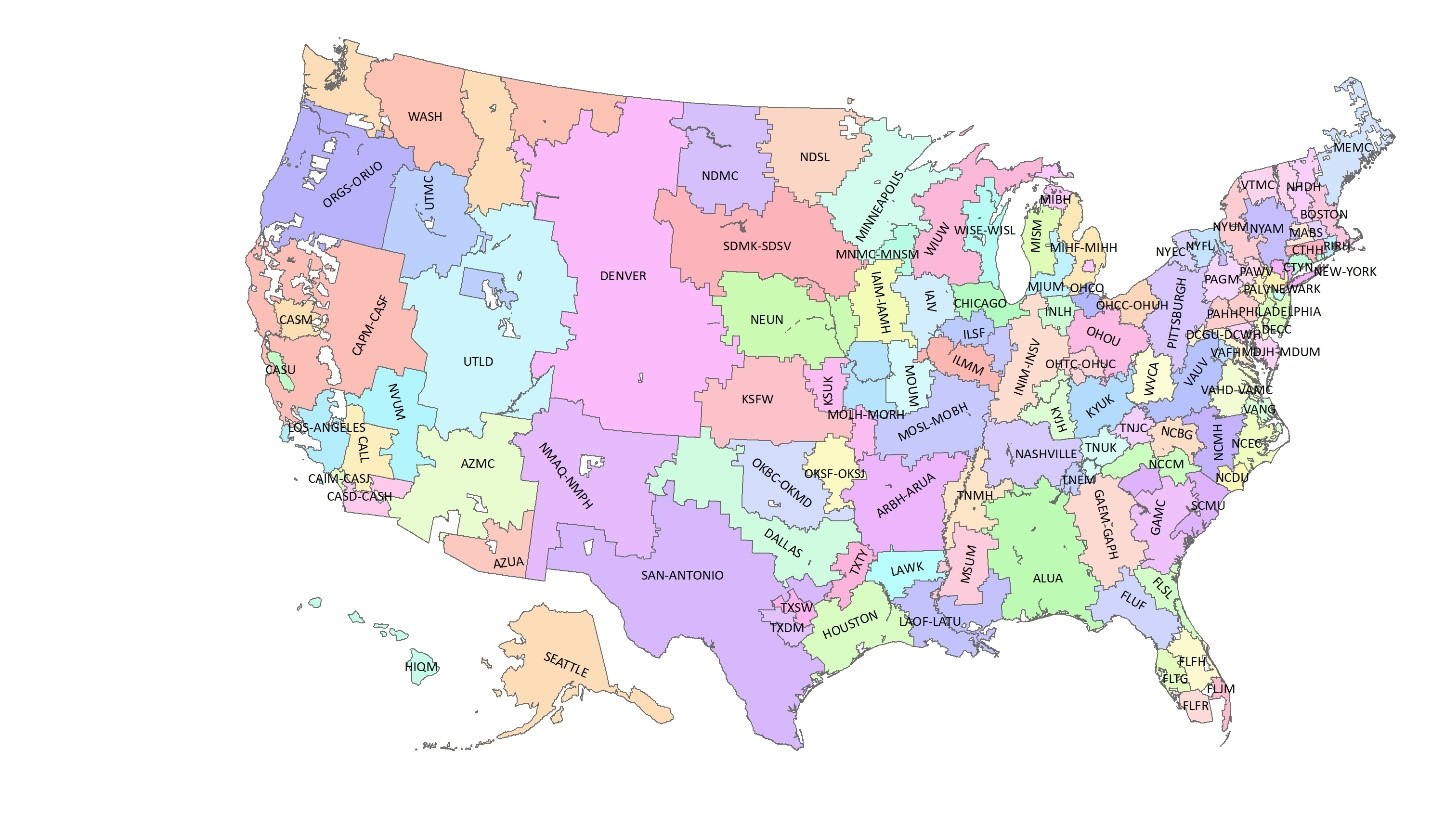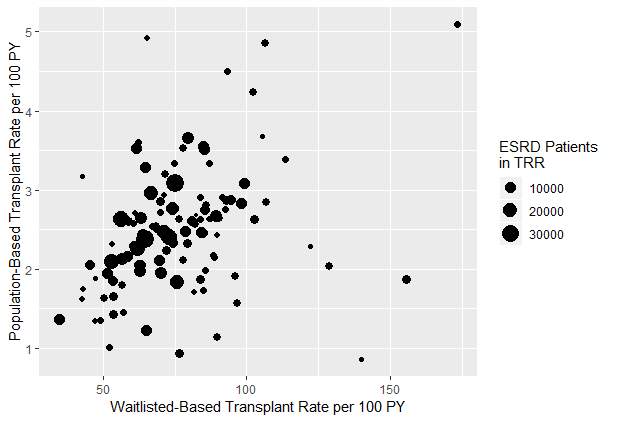Using Transplant Referral Regions to Measure Access to Kidney Transplant
1Emory University, Emory Transplant Center, Atlanta, GA, 2Dept of Surgery, University of Iowa, Iowa City, IA
Meeting: 2019 American Transplant Congress
Abstract number: 501
Keywords: Kidney transplantation, Methodology, Waiting lists
Session Information
Session Name: Concurrent Session: Non-Organ Specific: Disparities and Access to Healthcare I
Session Type: Concurrent Session
Date: Tuesday, June 4, 2019
Session Time: 2:30pm-4:00pm
 Presentation Time: 2:30pm-2:42pm
Presentation Time: 2:30pm-2:42pm
Location: Room 208
*Purpose: The transplant community has advocated to emphasize pre-transplant quality metrics to promote access to kidney transplantation (KT). Measuring access to transplant requires a well-defined, population-based denominator to assign patients to transplant centers (TC). We used transplant referral regions (TRR) defined from care patterns and national data on ESRD patients to assess variation in access to KT in the US.
*Methods: Data sources included SRTR (2006-16), the Dartmouth Atlas, and the United States Renal Data System (USRDS) (2016). TRRs are defined by assigning hospital referral regions to the TC where the plurality of its transplant candidates are listed. Using data from USRDS and SRTR, we calculated population-based waitlisting and KT rates using the TRR as the denominator and waitlist-based KT rates using the waitlisted population as the denominator.
*Results: We defined 110 U.S. TRRs for kidney recipients (Figure 1). Population-based waitlisting and KT rates were highly correlated (r = 0.80); waitlist-based KT rates were weakly correlated with population-based KT rates (r = 0.22, Figure 2) and inversely correlated with population-based waitlisting rates (r = -0.36).
*Conclusions: TRRs can be used to define population-based denominators to monitor access to KT. Waitlist-based metrics may not capture access to transplantation in the broader ESRD population. TRRs are limited in their ability to assign at risk population to TCs in regions with multiple centers in close proximity; waitlist metrics are limited in that they may not capture the true at-risk population. Both metrics may be helpful in assessing variation in KT rates.
To cite this abstract in AMA style:
Ross K, Axelrod D, Patzer R. Using Transplant Referral Regions to Measure Access to Kidney Transplant [abstract]. Am J Transplant. 2019; 19 (suppl 3). https://atcmeetingabstracts.com/abstract/using-transplant-referral-regions-to-measure-access-to-kidney-transplant/. Accessed March 3, 2026.« Back to 2019 American Transplant Congress


